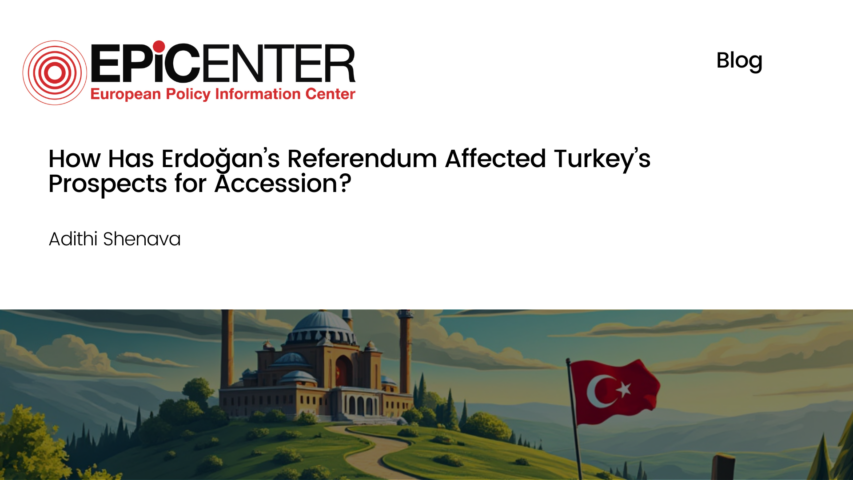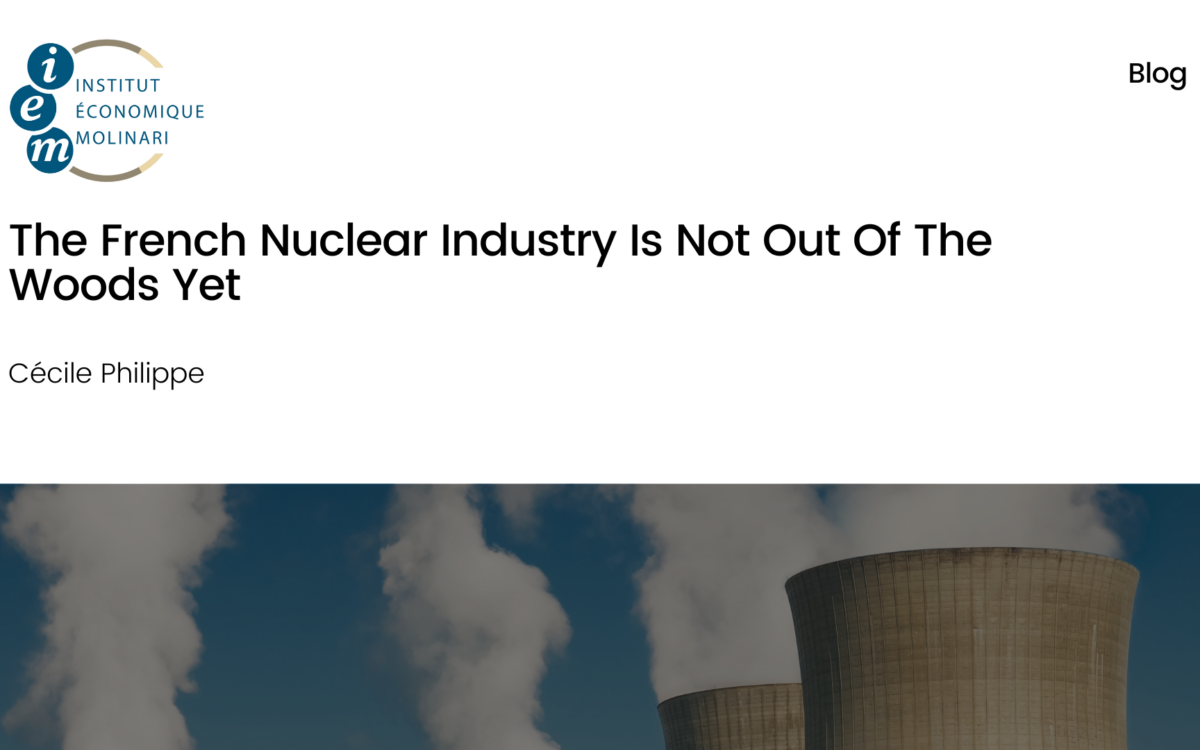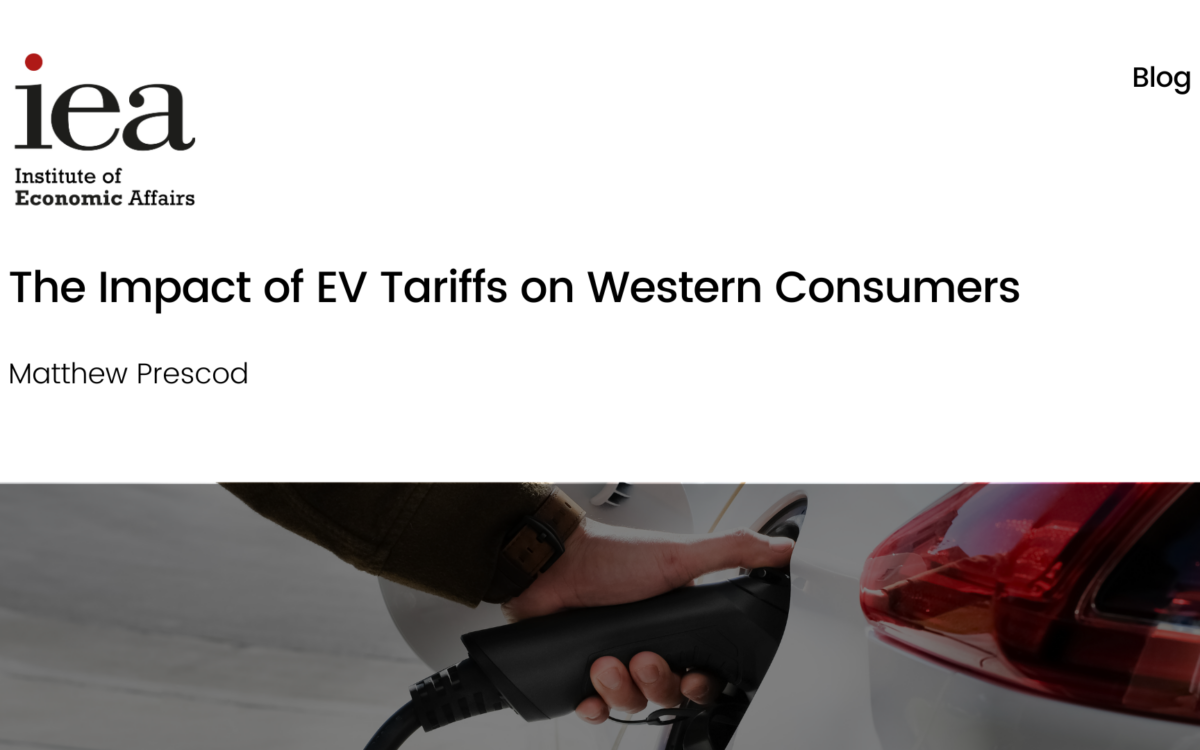How Has Erdoğan’s Referendum Affected Turkey’s Prospects for Accession?

How Has Erdoğan's Referendum Affected Turkey’s Prospects for Accession?
Adithi Shenava // 9 May 2017
“We don’t care about the opinions of any Hans, George or Helga…” Erdoğan proclaimed to the crowds at his presidential palace in Ankara, “…all debates about the referendum are now over”, and with it – almost certainly – Turkey’s chances of joining the European Union. This referendum marks the transformation of Erdoğan from a Turkish leader, insistent on closer relations between Turkey and the EU, into a fervently anti-European autocrat. However, we must consider whether this vote was truly a fork in Turkey’s road to accession or if their path was always a fantasy.
The referendum, itself, was held on 16th April, to decide if Turkey should abolish their existing parliamentary system of government in favour of a presidential system. Ultimately, Erdoğan declared victory for his ‘yes’ side, after commanding 51% of the vote. Unsurprisingly, reports from the OSCE and the EU commission have raised questions over the fair and free nature of this referendum. The Supreme Election council’s last-minute decision to accept unstamped ballots has been particularly criticised as violating the law and the legitimacy of the referendum. On top of this, as the campaign was conducted under the state of emergency, which was issued following the attempted military coup last July, Erdoğan’s dissidents had been jailed or silenced, preventing the ‘no’ side from campaigning freely. Not only has this contentious referendum polarised Turkish society, but also it symbolises a major turning point for the country’s future.
Turkey’s relationship with the European Union has always been complex, and the path to accession remains slow. Turkey initially applied to join the EEC, in April 1987, and negotiations for full membership started in October 2005. Since then, only 16 of the 35 chapters necessary to complete the accession process have been opened and only one had been closed by May 2016. Talks came to a grinding halt following the 2016-17 purges, in line with European Parliament’s vote to suspend negotiations over human rights and rule of law concerns
The 2015 Commission report on Turkey highlights the various issues contributing to Turkey’s struggle in accession and emphasises four main issues. Firstly, the Commission has stated that there has been “no progress on normalising bilateral relations with the Republic of Cyprus”. In opposition to the EU and the UN’s position, Turkey recognises the self-declared Turk Republic of Northern Cyprus, instead of the Greek Cypriot government as legitimate. Their refusal to remove trade barriers against Cyprus has prevented eight chapters in the negotiations from being opened, and their stance would concur in Cyprus vetoing Turkish accession. Secondly, concern has been raised that Turkey’s predominately young and large population would bestow it with the second-largest number of MEPs in the European Parliament, which is projected to equal that of Germany by 2020, skewing the balance of power within the EU. Cultural differences between Turkey’s Muslim majority and the predominately Christian Europe have also played a vital role in the debate, since Turkey would be the first Muslim-majority country to join the EU. Perhaps, most importantly, Turkey’s approach to human rights has resonated as the clearest obstacle to accession, with the 2015 report noting “significant backsliding in the past two years”. Not only has Turkey been entangled with issues regarding discrimination of certain groups, including women, the LGBT community, ethnic and religious minorities, like the Kurds, but the government’s response to the failed coup last July has emphasised an institutional disregard for human rights. Turkey’s decision to partially withdraw from the ECHR coincided with a government crackdown, rooting out anyone linked to the Fethullah Gulen movement, however tenuous the link may be. Evidence also points to systemic use of torture of detainees, and inhumane 24-hour curfews imposed on the Kurdish urban populations in the southeast of the country. This widespread contravention of fundamental human rights, values that are revered by the European community, has proven to be a major hurdle in closing ties between the EU and Turkey. Ultimately these four issues characterise the shared fear of EU members: that their vision for the European project would be threatened by Turkey’s inclusion.
Evidently, the difficulties of Turkish accession can be traced long before the referendum. Nonetheless, the role of the referendum should not be downplayed. Both its process and the outcome infringe the Copenhagen criteria, a prerequisite for accession. In fact, as the European Enlargement Commissioner, Johannes Hahn puts it; the new constitutional changes represent a ‘dangerous step backwards’ for democracy. The referendum result even prompted the Council of Europe to restart monitoring Turkey over ‘serious concerns’ about democracy and human rights on 25th April. The European Commission’s spokesman has warned Mr. Erdoğan that his plan to reinstate the death penalty would be considered as “the reddest of red lines” against EU accession. Thus, the fundamental message voiced by EU policymakers is that this referendum shows how Turkey is quickly moving further away from the block’s socio-political values, making accession even more improbable.
Despite Turkey’s political differences with the EU, the alignment of their economic interests is likely to drive an even closer economic arrangement than the current customs union in the future. Unaffected by faltering accession talks, bilateral trade and investment flows have been increasing exponentially, with the EU having invested €75.9 billion into Turkey in 2015. As Turkey now boasts the world’s 17th largest GDP-PPP and is the EU’s fourth largest export market, it would be detrimental for both parties to abandon their strong economic ties. Likewise, EU leaders have a vested interest in maintaining the refugee deal signed between Turkey and the EU, which is contingent to the acceleration of Turkey’s accession and visa-free access for Turkish citizens into the EU. Consequently, the Turkish government has been using this deal as leverage, occasionally threatening to open its borders. For instance, on the 22nd April, the Turkish Minister for EU Affairs posed an ultimatum to the EU regarding visa-free travel: “If they accept our proposal, the [refugee] deal would be completed in a positive way, otherwise it would come to a standstill,” he said. The confidence of Turkish officials in threatening the EU and the caution of European leaders following the referendum result, gives the impression that EU leaders may have to put aside their worries about Erdoğan’s potentially autocratic vision for Turkey, to manage migrant flows and ultimately save the Schengen project.
The possibility of Turkish accession to the EU has historically been considered unlikely. Many factors have contributed to this conclusion: Turkey’s religious majority, their relationship with Cyprus, and their repeated disregard for human rights, to name a few. However, their growing economy, their role in stemming migrant flows in Europe and advantageous geopolitical position has helped to hold their economic relationship with the Europe together. But for Turkish accession, the referendum could be the final straw. These constitutional changes could see Turkey breaking away from Europe’s Western values of democracy and the rule of law. Erdoğan once famously said that democracy was like a bus, he would ride it until it got him to his desired destination, at which point he would get off. Erdoğan has now got off this bus, and he may have left Turkey’s European dream on it.
EPICENTER publications and contributions from our member think tanks are designed to promote the discussion of economic issues and the role of markets in solving economic and social problems. As with all EPICENTER publications, the views expressed here are those of the author and not EPICENTER or its member think tanks (which have no corporate view).



